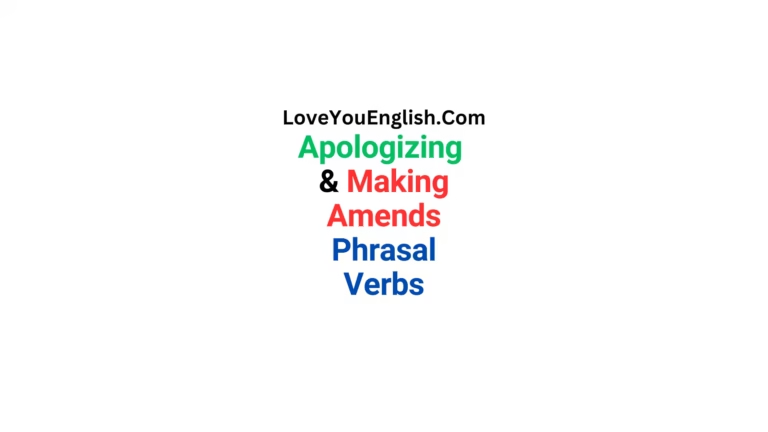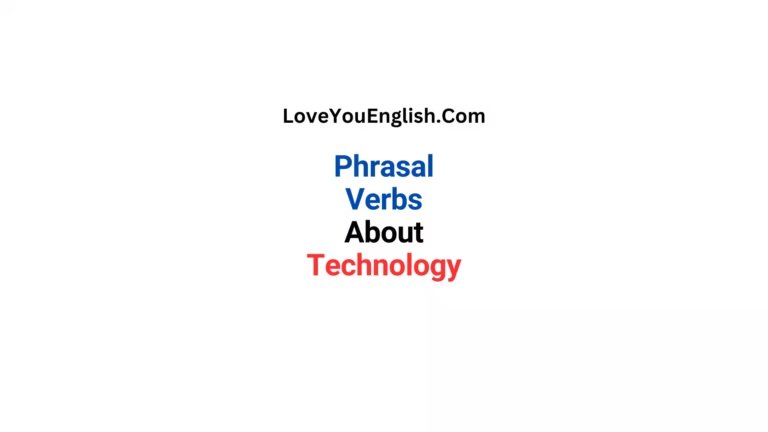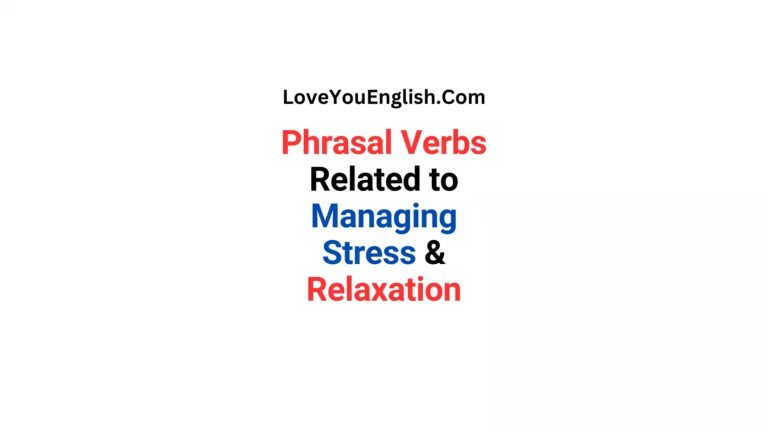20 Phrasal Verbs for Handling Complex Situations
When life throws us into complex or difficult situations, it can feel overwhelming.
Whether you’re dealing with problems at work, conflicts with friends, or challenges in everyday life, language can be a powerful tool.
Phrasal verbs—those tricky combinations of verbs and prepositions or adverbs—are especially useful.
They add depth to your communication and help you sound more natural when speaking English.
In this post, I’ll cover phrasal verbs for navigating complex situations, their meanings, and how to use them in simple sentences.
Let’s dive in!
1. Break Down
Meaning:
Example Sentences:
Usage in Complex Situations:
Use “break down” when talking about mechanical failures or emotional struggles. It’s helpful for describing moments when things don’t go as planned.
2. Sort Out
Meaning:
- To organize or solve a problem.
Example Sentences:
- I need to sort out the issues with my internet connection.
- Can you sort out the misunderstanding between them?
Usage in Complex Situations:
This is a go-to phrasal verb when tackling problems. It’s all about finding solutions and getting things in order.
3. Run Into
Meaning:
Example Sentences:
Usage in Complex Situations:
“Run into” is perfect for describing unexpected challenges or encounters.
4. Get Through
Meaning:
Example Sentences:
- She managed to get through the tough times with support from her friends.
- I couldn’t get through to him because his phone was off.
Usage in Complex Situations:
Use “get through” when overcoming challenges or reaching out to others for help.
5. Hold On
Meaning:
Example Sentences:
Usage in Complex Situations:
“Hold on” is about patience and resilience, making it an excellent choice for tough situations.
6. Work Out
Meaning:
Example Sentences:
Usage in Complex Situations:
This phrasal verb is versatile and can describe solving problems or improving oneself.
7. Bring Up
Meaning:
Example Sentences:
- He brought up the issue during the meeting.
- She was brought up in a small town.
Usage in Complex Situations:
Use “bring up” when addressing sensitive topics or starting important discussions.
8. Back Out
Meaning:
Example Sentences:
Usage in Complex Situations:
“Back out” is useful when discussing broken commitments or last-minute changes.
9. Turn Down
Meaning:
Example Sentences:
- She turned down the job offer because it was too far from home.
- Please turn down the music; it’s too loud.
Usage in Complex Situations:
This phrasal verb is helpful for polite refusals or managing external factors.
10. Step Up
Meaning:
Example Sentences:
- The team leader stepped up when the project was in danger of failing.
- We all need to step up and support each other during this crisis.
Usage in Complex Situations:
“Step up” is great for showing courage and leadership.
11. Fall Apart
Meaning:
Example Sentences:
- The plan fell apart when we lost funding.
- She started to fall apart after the stressful events of last week.
Usage in Complex Situations:
This phrasal verb helps express moments when things feel like they’re crumbling.
12. Carry On
Meaning:
- To continue despite difficulties.
Example Sentences:
- The workers carried on even after the storm disrupted their plans.
- She decided to carry on with her studies despite the challenges.
Usage in Complex Situations:
Use “carry on” to encourage persistence and determination.
13. Pull Through
Meaning:
- To recover from a serious illness or difficult situation.
Example Sentences:
- The doctors believe he will pull through after the surgery.
- She pulled through despite all the obstacles in her way.
Usage in Complex Situations:
“Pull through” is about overcoming hardships, especially serious ones.
14. Let Down
Meaning:
- To disappoint someone.
Example Sentences:
- He let down his team by not finishing the project on time.
- I’m sorry to let you down, but I can’t attend the event.
Usage in Complex Situations:
This phrasal verb is perfect for expressing disappointment or unmet expectations.
15. Figure Out
Meaning:
- To understand something or solve a problem.
Example Sentences:
- I need to figure out how to fix this computer issue.
- They figured out the best way to approach the negotiation.
Usage in Complex Situations:
Use “figure out” when dealing with puzzles, challenges, or confusion.
16. Call Off
Meaning:
- To cancel something.
Example Sentences:
- They called off the meeting due to a scheduling conflict.
- The event was called off because of the bad weather.
Usage in Complex Situations:
“Call off” is useful when talking about cancellations or changes in plans.
17. Give In
Meaning:
- To surrender or stop resisting.
Example Sentences:
Usage in Complex Situations:
Use “give in” to describe moments of compromise or surrender.
18. Deal With
Meaning:
- To handle or manage a situation or problem.
Example Sentences:
- She’s good at dealing with difficult customers.
- We need to deal with this issue before it gets worse.
Usage in Complex Situations:
This is one of the most common phrasal verbs for managing challenges.
19. Bring About
Meaning:
Example Sentences:
- The new policies brought about positive changes in the company.
- Their efforts brought about a resolution to the conflict.
Usage in Complex Situations:
Use “bring about” when discussing causes and effects in complex scenarios.
20. Cut Off
Meaning:
- To stop providing something (e.g., communication or supplies).
Example Sentences:
- The heavy snow cut off electricity in the area.
- She cut off all contact with him after the argument.
Usage in Complex Situations:
This phrasal verb is great for describing interruptions or endings.
Final Thoughts
Phrasal verbs can make your English sound more natural and expressive, especially when navigating complex situations.
By learning these common phrases, you’ll be better prepared to communicate effectively, whether you’re solving problems, managing conflicts, or simply sharing your thoughts.
Start practicing these phrasal verbs in your daily conversations.
Use them in context and write your own sentences to remember them better.
With time and practice, they’ll become a natural part of your vocabulary.
What’s your favorite phrasal verb? Share it in the comments below!
Read more:
- Essay about India For Students In English
- Essay About Swami Vivekanand for Students
- Essay About Rabindranath Tagore for Students
- Essay about Travel in English for Students
- Essay About Nature For Students in English







